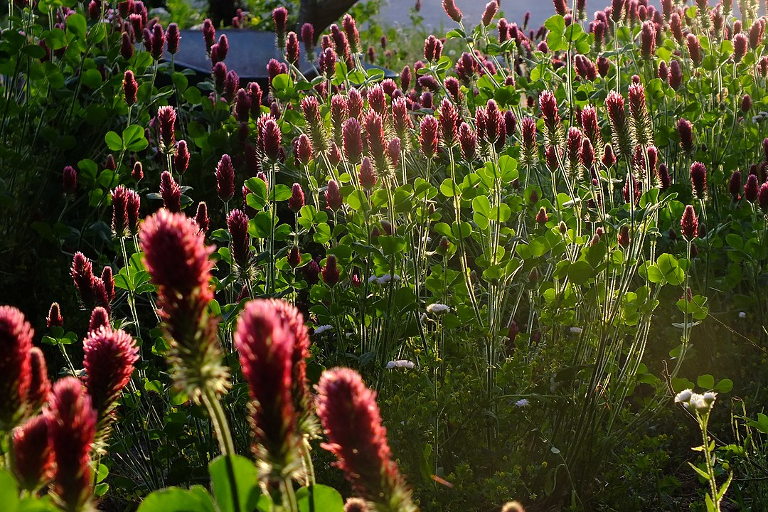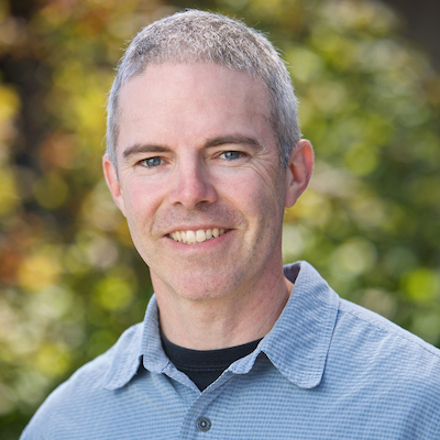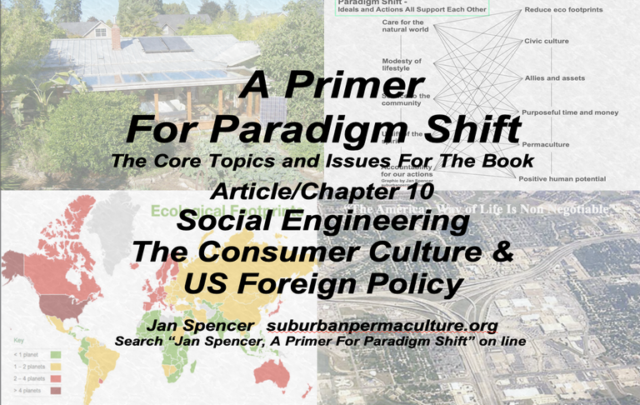This year is Post Carbon Institute’s 20th anniversary. It’s quite a landmark for an underdog think tank, and I wanted to do something meaningful in celebration (plus it’s Earth Day!). Over the last two decades, I have done a lot to reduce my ecological footprint, protect ecosystems, and promote sustainability and resilience, especially in the realms of conservation biology and ecological economics. But there’s always more to do, right? So I thought I’d use this anniversary as a kick in the butt to level up my environmentalism and become a more engaged member of my community. I also want to invite you to come along for the ride and challenge yourself to increase your engagement. Given all the combined environmental and social crises we collectively face (what PCI is calling the Great Unraveling), there’s a HUGE imperative and plenty of opportunities to change our thinking, behavior, and institutions for the better. Those of us with an ecological and prosocial worldview can set an example for others in our communities who may be looking for guidance.
It was tempting to jump straight to committing myself to some actions. But as most of us have learned from years of abandoned New Year’s resolutions, jumping in without forethought is a recipe for failure. I needed to make another list first: a set of values that I want to guide my actions. Here are four values I documented that are especially important to me at this time:
- Maintaining my personal health through a deep connection with nature. In my work on the Crazy Town podcast, a recurring theme is how humanity needs to rekindle its love for nature. Doing so sets the stage for protecting what we love. I’ve always been an outdoor enthusiast, but I also spend an awful lot of time in front of a computer screen. Maybe I can strike a better balance and find some novel ways to play and work outside.
- Reducing my use of fossil fuels and other flows of material and energy. I’ve known for decades that we need a less-consumptive economy powered by renewable energy. I’ve reduced my driving and flying and simplified my consumption, but maybe I can do more to shrink my footprint.
- Establishing stronger connections with friends and neighbors so we can work together to solve problems. PCI regularly promotes the idea of building community resilience. The community is the scale where we have the most agency, and cooperation is the key. I experienced such cooperative successes when I lived in a cohousing neighborhood. Now that I live in a private residence in an urban environment, maybe I can help establish stronger ties with neighbors on my street.
- Supporting policies and institutions that are good for soil, water, biodiversity, and people. Actions at the scale of the household and the community can be deeply meaningful and effective at provoking change. Still, we’re going to need systems to change at larger scales if we want to make a transition to a sustainable society. Maybe there are actions I can take to influence policies and institutions beyond my immediate surroundings.
Having set this foundation of values, I found that I could generate actions congruent with the kind of life I want to lead. Below I charted a few things I’ve done in the past and what I’m committed to doing for PCI’s 20th anniversary under each of these values. I’m sharing these ideas not because I believe I have the answers to the Great Unraveling, but because I hope you’ll take action of your own and share it with our community.
| Value 1. Connection to Nature | |
| Some actions I’ve taken in the past | What I’m committing to do this year |
| ● Planted native trees and shrubs.
● Worked on National Wildlife Refuges. ● Volunteered on stream restoration projects. |
● Walk, run, or bike in the woods each day.
● Plant pollinator-friendly wildflower strips. ● Learn how to cultivate edible mushrooms. |

Past successes at replacing lawn with crimson clover has emboldened me to try establishing some strips of native wildflowers in the yard that will support pollinators (there’s also a selfish side-benefit: this actions supports my hobby of bee-petting, which I highly recommend as a calming activity, depending on the aggressiveness of the bees, of course!)
| Value 2. Footprint Reduction | |
| Some actions I’ve taken in the past | What I’m committing to do this year |
| ● Reduced airline flights to less than one per year.
● Installed solar panels and electrified the house. ● Rode my bike for commuting and errands. ● Canceled subscription to Amazon Prime (I’m a bit embarrassed I ever had one!). |
● Replace even more car trips. I’ll even commit to making one of my podcast recording trips (~100 miles) by bike.
● Experiment with “buy nothing” intervals. |
| Value 3. Connection to Neighbors | |
| Some actions I’ve taken in the past | What I’m committing to do this year |
| ● Lived in an aspiring ecovillage for a dozen years.
● Learned how to mediate conflict. ● Volunteered to clean litter from neighborhood streets. ● Mentored interns and volunteers at nonprofit organizations. |
● Organize a block party and discuss how we can address the housing crisis, drug addiction, and crime in the neighborhood.
● Engage with the neighborhood association to work on street calming and beautification. |
| Value 4. Better Policies and Institutions | |
| Some actions I’ve taken in the past | What I’m committing to do this year |
| ● Worked for think tanks like PCI and steadystate.org.
● Wrote a popular book about policies from the field of ecological economics. ● Volunteered with a city-wide sustainability coalition. |
● Join a CSA (and split the food delivery with neighbors) to strengthen the local food system.
● Donate money to an organization working on Indigenous rights. |
Everyone has different values that rise to the top of their priorities, and everyone has different circumstances that will determine what actions make the most sense. If you have the capacity, I encourage you to revisit your values, review your past actions, and commit to doing something more this year. Any action, no matter how small, that’s congruent with solid values will make a difference.
I would like to dedicate this article to two brilliant and compassionate mentors I had the great pleasure to know, Herman Daly and Jerry Mander. They both passed away recently. I wouldn’t have the career (or even the mindset) I have today without their heroic work and kind support.
Teaser photo credit: Crimson clover in Hyogo, Japan. By 松岡明芳 – Own work, CC BY-SA 4.0, https://commons.wikimedia.org/w/index.php?curid=56746535






